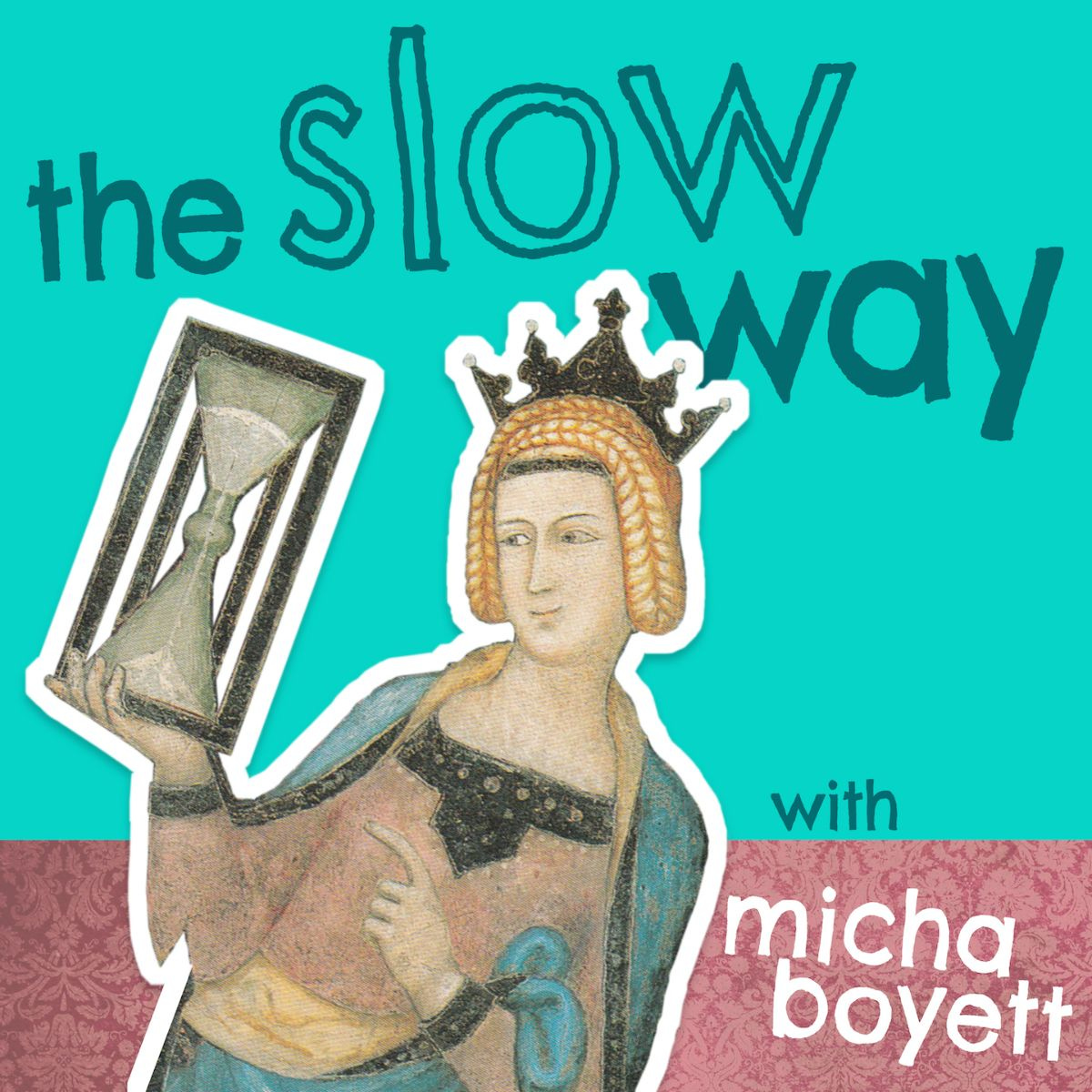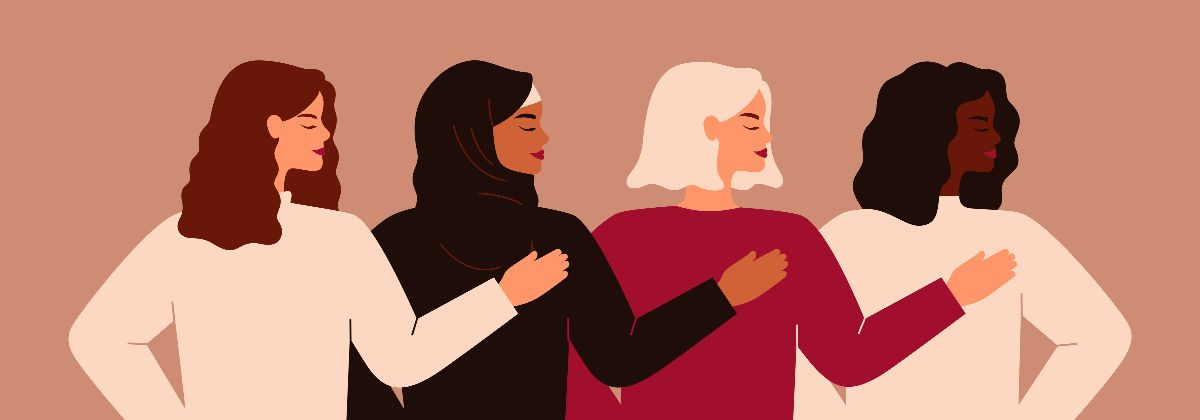The Slow Way Newsletter: Beloved Community is the Antidote For Your Exhaustion

a weekly newsletter for all the frantic strivers, serial doers & weary achievers
unhurried thoughts
Beloved Community is the Antidote For Your Exhaustion
It may not shock you to hear that like the rest of the known world, I can’t get the soundtrack to Encanto out of my head. And while I’ve been home with Ace this week, who has felt healthy enough, despite having Covid, I’ve been forcing him through a lot of the tasks I know he’d be doing at school. Of course, when you’re an autistic kid with Down syndrome, there are several reasons that sitting to do work at a table can be hard. One of those reasons revolves around Ace’s sensory needs. Sometimes he needs to *wake up* his body before his head will corporate. So, in my bedroom, where all his puzzles and number manipulatives and crayons await, we turn on Encanto to get his body and brain moving. And, of course, we pick “Surface Pressure.”
I mean, the beat is the best. And also, the lyrics hit a little close to home for me, which I imagine might be the case for you as well. Because when Luisa, the superpowered older sister of Maribel, does everything she can to live up to her outward strength, and finds herself incapable of rest, unrelenting in her expectations of herself, we all understand the story she tells herself about her own value:
Pressure like a grip, grip, grip and it won’t let go, whoa
Pressure like a tick, tick, tick ‘til it’s ready to blow, whoa
Give it to your sister, your sister’s stronger
See if she can hang on a little longer
Who am i if I can’t carry it all?
While Ace and I have been jamming to that one, I’ve been reading about “beloved community,” the phrase Dr. Martin Luther King Jr made famous, and an idea that Rev. Stephanie Spellers wrestles with in her recent book The Church Cracked Open: Disruption, Decline, and New Hope for Beloved Community.
There is a reason so many of us feel the pressure that Luisa sings about in Encanto. We live in an empire, in a human-made system of the powerful and the powerless, and since the world began unraveling the truth that was born in us -- our original goodness given by God -- we learn to slowly believe the lie of the Empire. It tells us that we can earn our place in the system. It tells us how to divide from one another, how to assign value. We learn who is attractive, who is smart, who is capable, and we understand that if we want to have value, there are tasks to accomplish. There are people to please. There is a path toward winning.
Spellers joins the voices of those before her, Rev. King and Howard Thurman, and St. Paul long before them. Paul, who in 1 Corinthians 12 reminds his friends that “in the one Spirit we were all baptized into one body—Jews or Greeks, slaves or free — and we were all made to drink of one Spirit.” As Spellers says, “Once they were baptized and clothed with Christ, the game had changed. There was no longer slave or free (or more pointedly, slave against free, or slave below free). In Christ those who were once far and those who were once near now stand on equal footing.”
She goes on to say, “in beloved community, nobody is inferior or superior, of greater or lesser value. . . on the contrary, the members of the body that seem to be weaker are indispensable.”
To bring it back to Encanto, Luisa, the strong one needs Mirabel, the emotionally attuned one to help her put words to her own fear. Luisa may be able to move buildings, but Mirabel’s seemingly unimpressive presence offers Luisa wholeness.
As we enter into this first week of Black History Month, I want this to remind us that there is no separation from our own spiritual practice and the pursuit of justice in this world. Any move we make toward unraveling the lie of empire is also a move toward unraveling the lie of white supremacy. They are all interconnected. Your belief that you can’t stop performing because your worth is all tied up in our society’s approval of you, is also an acceptance of the Empire’s confirmation that there ought to be haves and have-nots. If we want to undo the lie that the powerful and the rich and the smart and the achievers are superior, we must begin with our own hearts. You must believe that you are not superior because of your accomplishments, friend.
This is a spiritual practice we enact on a personal level, and then we take to our jobs, our communities, our schools, and our neighborhoods. Racism is the enemy of beloved community. So is ableism. “But in God’s community of love the ones on the bottom matter even more,” Spellers writers. “Because the world has cast certain groups down, God provides the extra honor necessary to balance those wrongs and achieve equity. Their experiences become gifts to the whole. Their suffering and persecution yield a precious store of wisdom, vulnerability, and compassion.”
Who am I if I can’t carry it all? Luisa sings. And maybe the question should be bigger: Who are we if any of us thinks we must carry it all? Lean toward beloved community, friend. Start with your own heart.
a slow practice

When I was 17 I had the opportunity to go to the Amazon River in northern Brazil on a missions trip. We can talk about my concerns with trips like this another time. (I have plenty, and I now consider it to have been a spiritual pilgrimage for my own self, not an act of service for the people I engaged. Lord have mercy.) We went by boat along the great expanse of that massive river, stopping at villages. And the deepest knowledge I gained on that trip was a metaphor of the life the Spirit was inviting me into: Love was wide and expansive, dangerous and moving, just like that river. And love was God. Is God. I was newly graduated from high school, poised for college and a life full of choices that I knew would make me. What would I choose?
One night, on the boat, gazing at the most brilliant stars I’d ever seen and the water lit up by them, I knew God’s presence was confirming something deep and true. My choices weren’t the most important thing: the river was. The Love of God, wide and expansive, dangerous and moving: I just needed to be in it. I needed to trust the love, and it would carry me to the decisions.
Can you imagine with me the biggest, most expansive river? I want you to stand on the side of that river, watching the water move past. What terrifies you about stepping in? Its speed? Its power? The lack of control? What if it takes you somewhere you don’t want to go? What if it covers you and you can’t find your breath? Look around you on the shore. Perhaps outside of the river, we are anchored to our performance, but in the water, carried and buoyed by love, we are released. We are free to be carried, not by our choices, but by the current. We are equal in the water. Beloved community.
As Spellers says, “imagine that love stretched out, from you to me, from us to others. Watch as it enfolds not just a few people, not just a family, not just a racial group, not just a nation. Imagine it encompassing enemies, the whole human family, and the whole of God's good creation.”
Can you sit with that image of God’s love as a powerful river, moving with purpose into all of creation, collecting us?
Take some time to consider yourself caught up in all that belovedness.
Let’s sit in silence.

